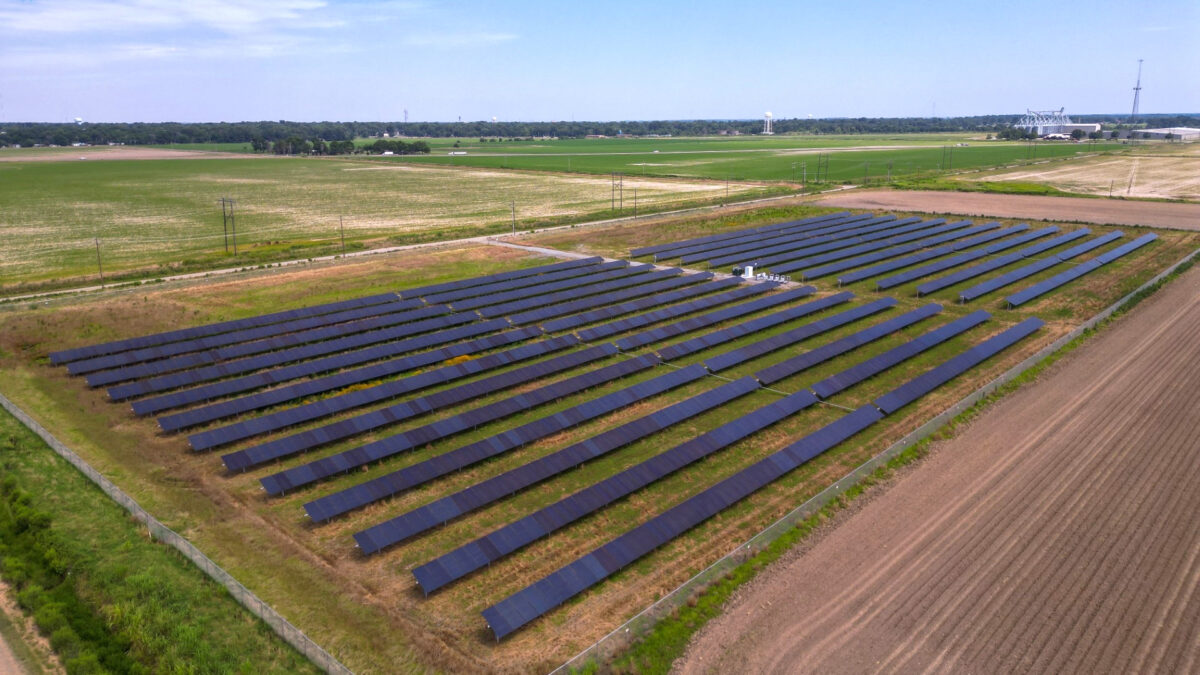The National Clean Investment Fund has announced its first project, prioritizing local economies and clean energy development.
Climate United, one of the three groups chosen to dispense the $14 billion of the National Clean Investment Fund (NCIF), is making its first official investment — $31.8 million to help build solar plants in Arkansas, the group announced Tuesday. NCIF is often referred to as the U.S.’s “green bank” because the fund is dedicated to financing clean energy technology projects across the country.
The recipient of the initial $32 million investment, solar investment firm Scenic Hill Solar, is working with the University of Arkansas to develop 18 solar power plants across 13 utility service territories, which will eventually generate over 4 billion kWh of clean electricity. The University of Arkansas was a pre-existing client for Scenic Hill, according to its CEO, Bill Halter, who explained its wide reach throughout the state was one reason it aligned so well with the application requirements laid out in the NCIF.
“The immediate beneficiaries of the project are 70,000 students, 17,000 faculty, [and] every University of Arkansas campus in every region of the state,” said Halter, “but the indirect beneficiaries are literally all three million Arkansans because it’s a publicly funded institution.”
“One of the things that we really saw in the Scenic Hill team was a great example of really looking at how to make sure that this project and this investment was doing everything it could to maximize the benefits on local economic impacts across the state of Arkansas, particularly for rural America,” said Beth Bafford, CEO of Climate United, part of the coalition making up the “green bank.”
Bafford explained that what made Scenic Hill’s application stand out was its ability to meet the three main objectives of NCIF: a significant reduction in greenhouse gas emissions, a direct benefit to people’s lives, and the ability to fill market gaps and grow private capital.
“The immediate beneficiaries of the project are 70,000 students, 17,000 faculty, [and] every University of Arkansas campus in every region of the state.”
“All three of those objectives are clearly met,” said Bafford.
Although the funding was only just announced, Halter said there’s already a lot of community interest in private investment in the project, including landowners looking to host the solar plant, contractors, suppliers and local banks.
“We’ve got a number of local tax equity suppliers and … a couple of investment banks that are Little Rock headquartered that are now engaging in debt transactions on these assets,” said Halter. He also stressed the importance of Scenic Hill Solar’s establishment within its local community since the company’s inception nine years ago, establishing “a kind of ecosystem for our industry.”
The next stage of the project will focus on securing permanent private financing for the project and construction of the plants. When asked about Climate United’s plans to announce its next investment, Bafford said to look out for another announcement before the end of 2024. And although the presidential election will occur in that timeframe, the NCIF funds are fully secure.
“The funds are fully obligated out of the Greenhouse Gas Reduction Fund, which was a $27 billion program across the National Clean Investment Fund,” said Bafford. “Those funds had to be obligated before the statutory deadline, which was [Sept. 30], and were obligated in early August.”
This article originally appeared on Trellis Group (formerly GreenBiz.com as part of our partnership with the media and events company that accelerates the just transition to a clean economy.
Featured photo: Scenic Hill Solar


